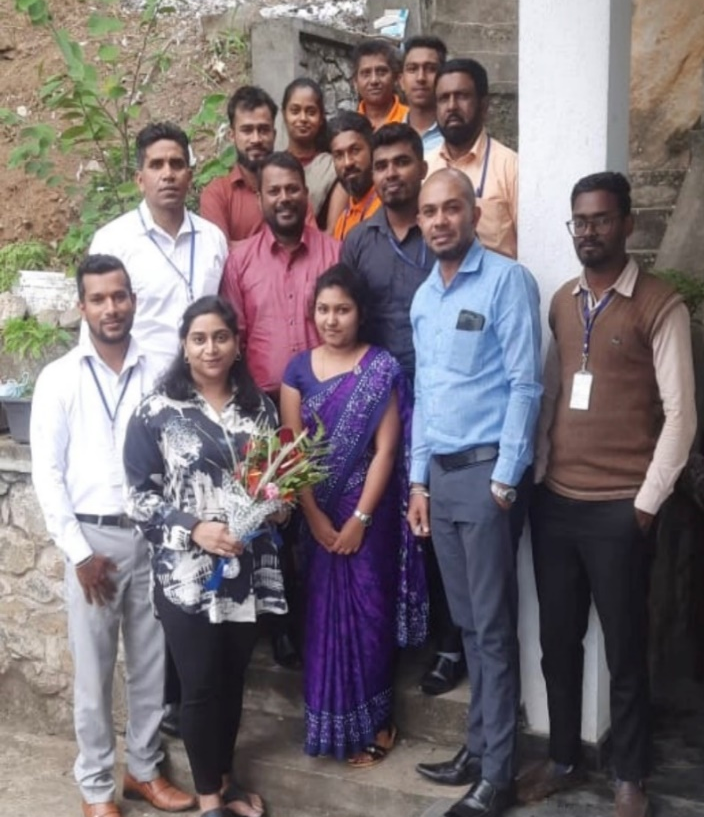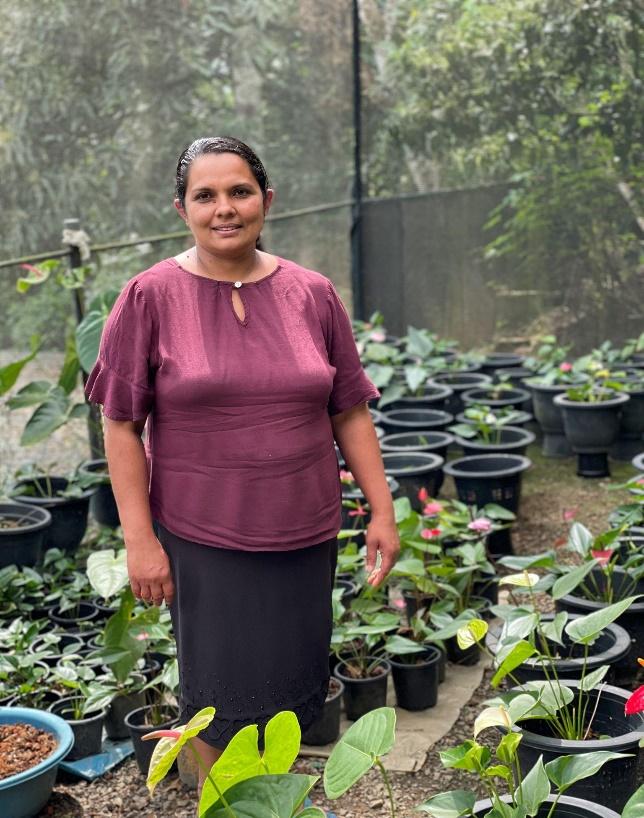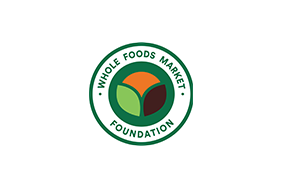Visiting Sri Lanka After the Economic Crisis
By Tanzila Salahuddin
Published 06-16-23
Submitted by Whole Foods Market Foundation

In December 2022, I traveled to Sri Lanka for the first time to visit Whole Planet Foundation's microfinance partner there, Berendina Micro Investment Company (BMIC). Although I have traveled to many different countries in the same region in my role as the Asia Pacific Program Manager, the Sri Lanka trip will always remain as one of my most memorable ones.
BMIC first opened its doors in 2007 with the objective of uplifting the living standards of underprivileged segments in the population of Sri Lanka by enhancing the access to microfinance, Enterprise Development Services (EDS) and micro-savings. BMIC is the first microfinance company in Sri Lanka, having received the microfinance license from the Central Bank of Sri Lanka in 2019. BMIC serves over 70,000 clients with a portfolio value of UDS $10.8 Million in 11 high poverty districts in Sri Lanka through 30 branches. BMIC has been in partnership with Whole Planet Foundation since 2015 to reduce poverty of low-income entrepreneurs in the project areas. BMIC follows the triple bottom line approach of people, planet, and profit and contributes to the Sri Lankan economy by providing both financial and non-financial services to enhance the income generation activities of the economically active low-income people and build their useful assets.
Sri Lanka is at a critical moment in its history. In 2021, the Sri Lankan government declared a state of economic emergency. Years of political mismanagement, the falling of the national currency exchange rate, inflation rising, and pandemic restrictions in tourism all led to an economic collapse. In 2022, the situation worsened, and people started to face day-to-day challenges such as power cuts of up to 10 hours per day1, shortage of fuel, and extremely inflated food prices with food inflation increasing to 95%2. Businesses started to shut down and people started to lose their jobs, leading to high unemployment, and increasing poverty rates.
Despite being one of the largest and licensed microfinance institutions (MFI) in Sri Lanka, BMIC too went through a very difficult time during the crisis. More than 45 percent of their portfolio was at risk. As the majority of BMIC’s clients work in agriculture, and as fertilizer imports were restricted by the government, the majority of BMIC’s clients could not repay back their loans. Additionally, due to fuel shortages, a large portion of clients had to shut down their businesses. These challenges not only made it difficult for BMIC to operate but hundreds of MFIs closed their doors permanently. However, what I really appreciated was how resilient the people of Sri Lanka are. With external financial support and intervention from India, China, the International Monetary Fund and the World Bank, Sri Lanka is now finally in recovery mode and Sri Lankan residents are eager to bounce back.

When I visited in December 2022, the country was just starting to open its doors again to tourism. Everyone I met, starting from the immigration officer to the BMIC field staff, was extremely positive. They were excited that foreigners were visiting Sri Lanka again. My 4.5-day visit with BMIC from the bustling city of Colombo to scenic hilly tea gardens in Kothmale and Nuwara Elia provided me with a great overview of the present context in Sri Lanka, especially in the microfinance world.
Meet BMIC client, Widya for instance. Widya has been a member of BMIC’s Kothmale branch since 2012. She first learned about BMIC’s microlending program at a community gathering where BMIC had arranged an awareness program. Initially, Widya took a housing loan and after a few years she decided to take subsequent loans to help her with her business. At first, she invested her loans into mushroom production but that didn’t go well. Later, she decided to invest in buying fertilizers to plant Anthurium flowers. She started with 80 plants and grew it to more than 200 plants. She sells the flowers to a floral export company called Sunita Florals.
During COVID-19 and the economic crisis, Widya faced a lot of challenges as there was a shortage of fertilizers in the market. However, she appreciates her membership with BMIC, their flexibility, and the confidence they have in her business. Widya also mentioned that BMIC’s business development and technical training helped her grow her business. Now that the country is in recovery mode, the Anthurium business is helping her generate about USD $110 per month which is very helpful for her and her family of seven – her parents, her husband, and her three children.
Most people that I met in Sri Lanka had the same attitude. From the field officers to the senior management of BMIC, everyone is grateful for what they have and is confident that the situation will slowly improve. One of the field officers mentioned that during the crisis, he had a difficult time collecting repayments but with consistent follow-up, guidance, and encouragement, clients managed to stay with the program. BMIC’s portfolio at risk percentage decreased from 48% in September 2021 to 6.22% in December 2022. Similarly, the BMIC management shared that this is the time when their services are most needed, and they are doing everything in their power to expand their work and reach vulnerable communities across the country. The positivity, resilience and the hospitality of our Sri Lankan colleagues are what made my trip so memorable, and I know that I will definitely return again.
2 https://www.cbsl.gov.lk/en/news/ccpi-based-inflation-in-october-2022
Learn more at wholeplanetfoundation.org.

Whole Foods Market Foundation
Whole Foods Market Foundation
Whole Foods Market Foundation is on a mission to nourish people and the planet by providing access to essential resources to improve nutrition and create opportunities for financial stability. Founded by Whole Foods Market, the registered 501(c)(3) non-profit organization based in Austin, Texas, encompasses the work of Whole Cities, Whole Kids and Whole Planet
WHOLE CITIES
Whole Cities improves individual and community health by expanding access to fresh, healthy food and nutrition education.
Wholecitiesfoundation.org
WHOLE KIDS
Whole Kids enhances children’s wellness by improving access to nutritious foods, supporting healthy food education, and building professional development to sustain those changes.
Wholekidsfoundation.org
WHOLE PLANET
Whole Planet helps people living in poverty build long-term financial resilience through income growth, savings, and access to essential resources like food, shelter, water & sanitation.
Wholeplanetfoundation.org
More from Whole Foods Market Foundation

